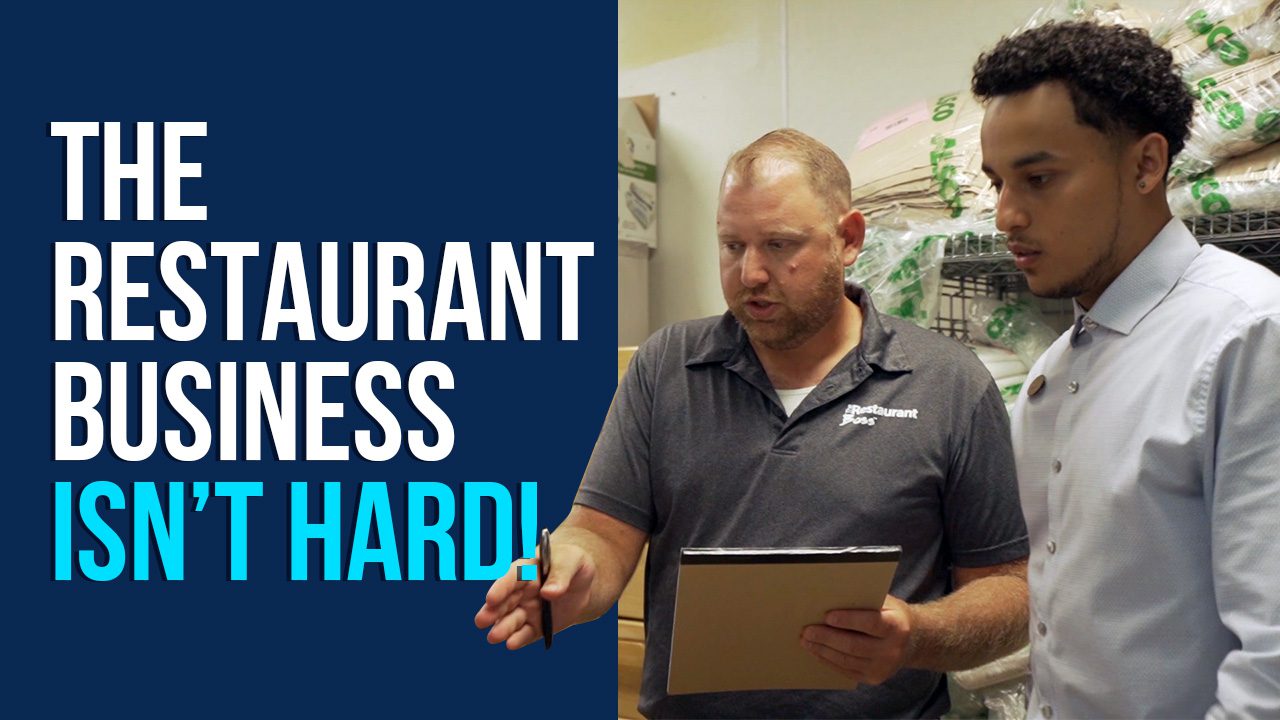Five Steps for Handling Late Restaurant Employees
Today, I’m sharing my 5 steps for handling tardy employees in a way that is very constructive and helpful without making anyone angry or accusatory.
Read the Video Transcript by Clicking Here...
Introduction:
Have you ever had a restaurant employee come in late? I bet that’s never happened to you. (Written very sarcastically!) But just in case it ever has I’m going to give you my five steps on how to handle that, in a way that is very constructive and helpful without making anyone angry or accusing anyone of anything. It’ll really help with your tardiness problem, but I know you don’t have a tardiness problem right? Wink, wink.
Fives steps to handle tardy employees:
Tardiness is a big problem; I hear it a lot from people. I had a little bit of a challenge with this when I operated my restaurants, but not as much as most people do and I’m pretty sure it’s because of the way that we handled it. Let me just quickly go over these five steps, and then give you some pointers and details:
- Ask for their permission.
- Explain the behavior to them.
- Make it larger than them.
- Ask them how they will improve their behavior in the future.
- Thank them for their time.
Now this is all part of a process that you could use for nearly any behavior, but let’s continue using tardiness as the example.
1) Ask their permission to talk to them. I know that they’re your employee and you feel like you should be able to talk to them at anytime, but what if their dog died this morning, had a problem with their kids, or what if they’re just not in a good place right now. Or what if they’re truly concerned about knowing they have a ton of work to do. It’s easy to doubt them, but it is possible that there is a valid reason. It’s better to say, “Hey, is now a good time for you?” If they say no, respect that and just say, “When would be better for you?” We can’t just expect that because they’re your employees that we can critique them any time without their permission. So ask them first. I promise this will go miles for you. You have to trust me on this one.
2) Explain the behavior. In this case, being late is not questionable. If you say, “Hey, I noticed you were 10 minutes late,” they’ll reply, “No I wasn’t, I was here on time.” Then you just need to say, “Oh! My mistake, I must not have seen you.” It doesn’t matter what excuses they might make at this point because the next steps are going to address this for you. Simply explain that they were late: it’s black and white; there’s no gray area. It’s not, “Oh I didn’t know.” If they didn’t know, then you didn’t do a good enough job of giving them a schedule or the schedule wasn’t posted. If they didn’t know this is all on you.
3) Make it larger, explain the impact it has. If they say “Yeah, I’m really sorry” tell them “Hey when you’re late, it causes all of us to get really concerned, we don’t know if you were in an accident. Plus, I started contacting other employees to get your shift covered and that takes a lot of time away from all of us. You being 10 minutes late actually cost the company about an hour of productivity.” I they insist that they weren’t late, tell them “No problem, I just didn’t know you were here and I had to go through all of these steps. So whether you were here or not, it still cost the company all of this productivity”.
4) Ask them how they can improve. If they say, “I was late because my alarm didn’t go off,” don’t don’t tell them, “Well set two alarms or set another alarm.” That’s your solution to their problem. We need their solution to their problems. Instead, ask, “What can you do differently to ensure this doesn’t happen again?” and then shut up. In all negotiations, the first person to talk always loses. Whatever they tell you is gold, because now you can use that to manage them in the future. If they say they’re going to set two alarms and they’re late again, go through this process again and say “What happened, I thought you were gonna set two alarms?” Now they can’t use that as an excuse anymore. What we’re doing here is eliminating their excuses one at a time.
5) Thank them for their time. Simply say “Hey thanks, I really appreciate you taking the time with me today.”
I know this seems complex. I know this seems like a lot of things, but trust me this becomes natural. This is what I call the five-step feedback formula, I use this any time I need to correct behavior of anyone on my team or when I was in the restaurant. When I learned this, this was like gold for me.
Summing it up:
So again let’s just review quickly, 1) Ask their permission, 2) Explain the behavior, 3) Make it larger than them, 4) Ask how they can improve in the future, and 5) Then thank them for their time. Watch this video 20 times, go practice this. Trust me it works. Hope you have a wonderful day, I look forward to bringing you another great video like this next week.
Read More
Running a Restaurant Isn't Hard
The #1 complaint in restaurant management is poor employee performance. If you’re not following this simple 5-step plan to train your employees, you’re never going to get the results that you want from them …ㅤㅤㅤ
Busy Is Killing Your Restaurant
Are you busy? There are things you’re doing all day, every day in your restaurant and it’s those things that are going to put you out of business. There are 4 things you can do today to battle the busy inside your restaurant …
Follow For More:







